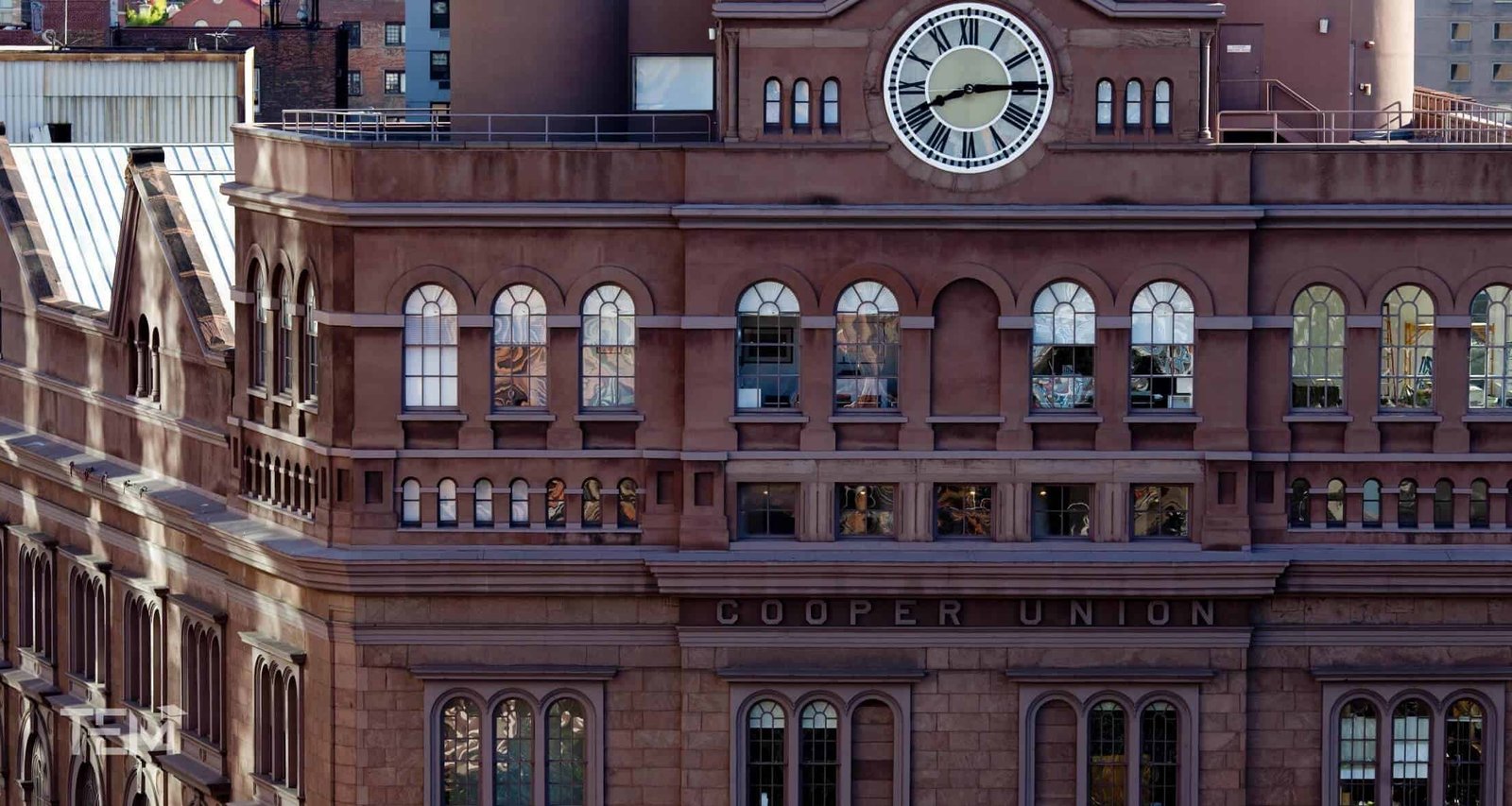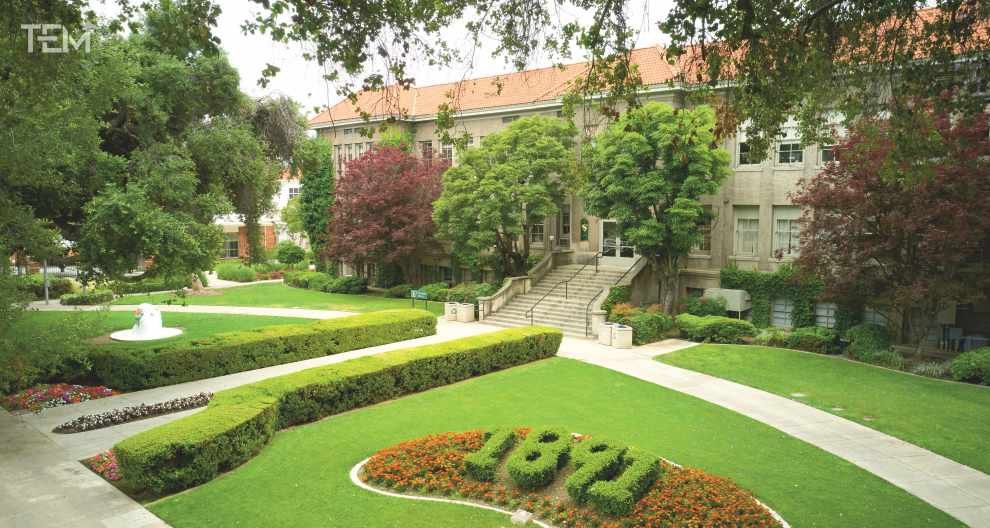In 1859, inventor, industrialist, and philanthropist Peter Cooper founded The Cooper Union for the Advancement of Science and Art. The foundation of this prestigious institution was laid on the grounds of his radical commitment to diversity and that fair access to an inspiring free education and forums for courageous public discourse foster a just and thriving world. In a speech in 1853, Peter Cooper proclaimed, “My feelings, my desires, my hopes, embrace humanity throughout the world.” From its beginnings, Cooper Union was a unique institution, dedicated to founder Peter Cooper’s proposition that education is the key not only to personal prosperity but to civic virtue and harmony. Peter Cooper wanted his graduates to acquire technical mastery and entrepreneurial skills, enrich their intellects and spark their creativity, as well as develop a sense of social justice that would translate into action. Further, he looked forward to a time when “knowledge shall cover the earth as waters cover the great deep.”
The opening of the Foundation Building marked the creation of The Cooper Union. It is now one of New York City’s landmarks. After the building opened, it soon became a common meeting place for intellectuals, inventors, tinkerers, and people from across the social strata.
The Great Hall, located in The Foundation Building, has stood for more than a century as a bastion of free speech and a witness to the flow of American history and ideas. Many famous Americans—rebels and reformers, poets and presidents—have spoken at the Great Hall’s lectern. Before they were elected, Presidents Lincoln, Grant, Cleveland, Taft, Theodore Roosevelt, and Barack Obama all spoke in this famous landmark. Besides Woodrow Wilson, two other incumbent presidents have spoken in the Great Hall: William Jefferson Clinton, who, on May 12, 1993, delivered a major economic address on reducing the federal deficit and Barack Obama, who, on April 22, 2010, gave an important speech on economic regulation and the financial markets. Abraham Lincoln gave his famous “Right Makes Might” speech that propelled him to the White House in the Great Hall. More recently, groups like the United Nations, PEN America, the Public Art Fund, and the Architectural League of New York and more have held events on its stage.
Outstanding Academic Programs
The Cooper Union for the Advancement of Science and Art is comprised of three schools: the School of Art, The Irwin S. Chanin School of Architecture, and the Albert Nerken School of Engineering.
- The Irwin S. Chanin School of Architecture believes in providing the finest professional education available within an intellectual environment that fosters and expands their creative capacities and sensibilities and establishes the foundation for a creative professional life.
- School of Art starts with a mission to educate artists in the broadest sense, both as creative practitioners engaged with a wide range of disciplines in the visual arts and as enlightened citizens of the world who are prepared to question and transform society. The program is structured around an integrated curriculum that fosters connections between disciplines, as well as between traditional and new media.
- Albert Nerken School of Engineering: offers bachelor of engineering (B.E.) degree programs in chemical, civil, mechanical and electrical engineering, accredited by the EAC commission of ABE. In addition, the school offers a general engineering program (B.S.E.). The integrated master’s program offers the opportunity to earn both a bachelor’s and a master’s degree in an engineering discipline. Cooper Union engineering graduates are known for revolutionizing their disciplines and transforming society, with achievements ranging from the Nobel Prize-winning discovery of a binary pulsar, to developing the first Global Positioning System, to engineering the infrastructures that support everyday life in New York City.
- Faculty of Humanities & Social Science: The Cooper Union is committed to the principle that an education in the Humanities and Social Sciences provides the ethical, social, and humanistic framework crucial to personal development, professional excellence, and engaged citizenship. Through their work in HSS disciplines, students will gain a deeper awareness of the world in which they must live and act.
Creation of New Approaches and Solutions
The School of Engineering produces lifelong learners and active citizens who endeavor to work within and across disciplines, who lead and empower, who think and take action at Cooper and beyond. Engineering is fundamentally about solving problems, and Cooper gives its students the tools and skills to do so. The outstanding academic programs designed in architecture, art, and engineering prepare students to make enlightened contributions to society. The Cooper Union nurtures the potential of the students helping them to reach new heights. Education at Cooper inspires the ‘what-if’s,’ ‘the experimentation’ and ‘discovery’. This creation of new approaches and solutions is inspired to adhere the disciplines and practices in the current industry scenario. Alongside, it also motivates the students to pursue arts to lift up their lives.
Quality Mentors Guiding the Students
To understand the role of education one must understand the role of teacher. The contributions of professors are key to any institution and the faculty at The Cooper Union are committed to preparing students to succeed in an increasingly complex world shaped by emerging technologies and global challenges. Cooper Union professors instill students with the desire and the ability to use their engineering background to fulfill their potential as knowledgeable, creative, and responsible makers, thinkers, doers, and leaders in society. Furthermore, Cooper Union’s small class and project-based learning providing opportunities for students to enhance their education through research and collaboration with peers and faculty.
Together, they pursue innovative and responsible solutions to today’s great challenges, such as those related to climate change, automation, alternative energy, artificial intelligence, and drug delivery. Cooper Union students are encouraged to pursue internships and, typically, finish at least two internships before graduation. The Center for Career Development helps prepare students to transition successfully from their undergraduate degree to either an advanced degree or to their professional career. Also, Cooper has built creative partnerships with larger and foreign institutions so that students can have exposure to research, career opportunities, and experiences beyond the in-house resources.
Exceptional Research Study and Fellowship Opportunities
The scholarship is designed to benefit each and every student studying the institution. Every admitted student receives a half-tuition scholarship. On average, 77% of tuition now is covered for undergraduates. All applicants are also automatically considered for additional merit and need-based scholarships. Over the course of their academic careers at The Cooper Union, students often take involved roles in ongoing research on campus—whether under terms of tutelage and collaboration with faculty or through their own independent projects.
The Benjamin Menschel Fellowship Program grant was intended to provide funding to exceptional students who propose scholarly, independent projects that will in some way provide a culmination to their educational endeavors at The Cooper Union. This fellowship is awarded to support work in the fields of art, architecture, design, and engineering. Previous projects have included work that explored post-hurricane efforts in Houston, a look at Lake Baika, the deepest and oldest water reservoir in the world, and more. Cooper Union has also initiated an Internal Grant Program to provide funding for projects that enhance students’ learning experiences, opportunities for the community to come together in addressing the critical societal issues such as climate change, and more. The Rhoda Lubalin Fellowship is awarded annually to a selected rising senior, (or current senior graduating in December), within the School of Art who has excelled in the field of graphic design. Travel Fellowships offer enrolled students to study abroad at peer institutions and oftentimes conduct personal research and projects. The Schools of Art and Architecture offer the Palmer Hayden Travel Fellowship for African-American students. The School of Art also offers the Martin Rothenberg Travel Fellowship and others.
A Program for the Future
Under this section, we have covered the unique program of the University which is not only futuristic but also meeting the current demands of the students.
The Center for Writing offers support and feedback on all types of written and spoken communication for the students, staff and faculty at Cooper Union. Writing Associates are experienced classroom instructors, with advanced degrees and a special interest in writing pedagogy. Its mission is to improve student writing across the curriculum and to support faculty in the teaching of writing and in their own writing.
It works with students at all levels of experience on all sorts of issues relating to reading, writing, and speech.
While the Center’s main charge is to offer one-on-one and small group sessions, it also oversee several initiatives that contribute to the mission:
- Union: A Journal of Student Writing
- The Cooper Union Writing Group
- The Writing Fellows Program
One-on-one or small-group sessions may focus on:
- All stages of course assignments, projects and presentations
- Outside or independent work
- Grant, graduate, and fellowship proposals and applications
- Particular issues, skills, or concerns, including ESL and learning disabilities
- Strategies for effective reading, writing, and presentations


